Nestled in the stunning landscapes of La Quinta, California, the Andalusia Country Club embodies luxury, relaxation, and a sense of community. This exclusive club is not merely a golf facility; it serves as a gathering place for families and friends, offering a picturesque setting to unwind and socialize. Whether you’re a golf enthusiast, a fitness fanatic, or simply seeking a serene environment, Andalusia has something for everyone. Join me as we explore all this remarkable country club has to offer.
Unveiling the Club
The Overview
Andalusia Country Club opened its doors in the early 2000s and has since been a hallmark of luxury living in the Coachella Valley. Spanning over 700 acres, it features 522 residences surrounded by spectacular mountain views, rich vegetation, and beautifully designed landscapes. The club combines Spanish-Moorish architectural styles with modern amenities, providing a unique aesthetic for members and guests alike.
Membership Options
At Andalusia, membership is not just about access; it’s about belonging to a community. Various membership options are available to cater to different lifestyles, including:
- Full Golf Membership: Complete access to the golf course, social events, and dining.
- Social Membership: Enjoy dining and social events without golf privileges.
- Family Membership: Perfect for those looking to enjoy amenities with family.
Each membership provides distinct benefits while fostering a community atmosphere. Residents frequently express that the friendships formed here are as rewarding as the amenities enjoyed.
The Golfer’s Paradise
The Golf Course
Andalusia’s golf course is an acclaimed championship course designed by the renowned architect, Clive Clark. Here are some highlights:
- 18 Holes: The course presents challenges for both novice and seasoned golfers.
- Scenic Views: Majestic mountains frame fairways, adding to an unforgettable golfing experience.
- Well-Maintained: The course is strongly committed to sustainability, employing eco-friendly practices to maintain its beauty.
Quote: “Golf at Andalusia is not just a game; it’s an experience that combines skill, nature, and camaraderie.”
 Andalusia golf course overview
Andalusia golf course overview
Facilities and Amenities
Andalusia Country Club boasts a variety of facilities that enhance life for its members:
- Clubhouse: Elegant dining options serve gourmet meals and local favorites.
- Pro Shop: Well-stocked with the latest in golf gear, apparel, and equipment.
- Practice Facilities: Driving range, putting greens, and short-game areas ensure members can hone their skills.
Beyond Golf: Wellness and Activities
Fitness Club
Staying fit is a priority at Andalusia. With a state-of-the-art fitness center, members have access to several exercise classes, gym equipment, and personal training sessions. The fitness offerings include:
- Yoga and Pilates: Classes designed to enhance flexibility and strength.
- Cardio and Strength Training: Group workouts and individual sessions.
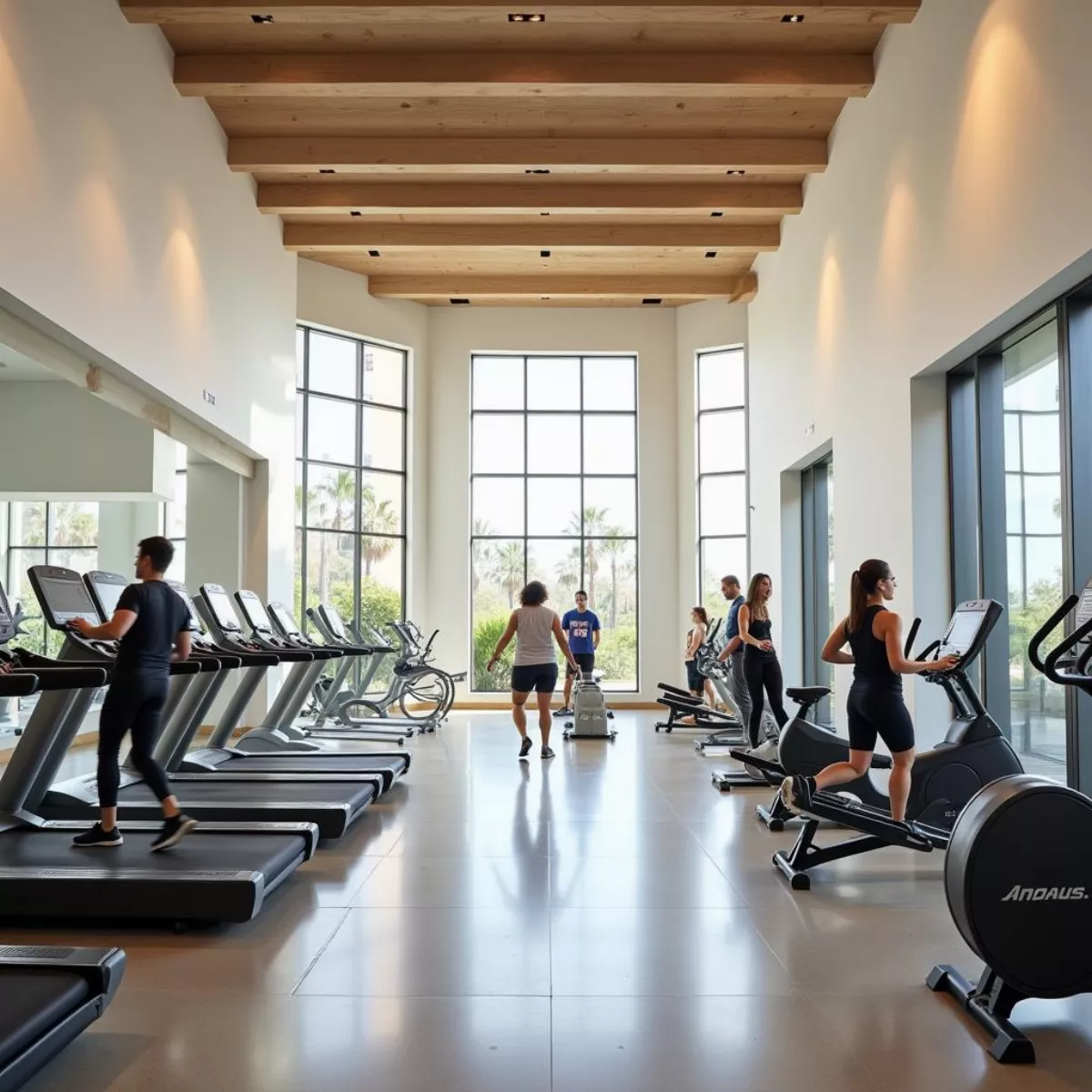 Spacious and modern fitness center
Spacious and modern fitness center
Social Events
Andalusia Country Club is renowned for its vibrant social calendar. Members can participate in:
- Themed Events: Seasonal celebrations like holiday parties and summer barbecue evenings.
- Wine Tastings: Enjoy curated selections from boutique vineyards.
- Member’s Dinners: Exclusive dining experiences featuring renowned chefs.
Each event fosters connections and builds a sense of camaraderie among members.
Tennis and Swimming
For members enjoying racquet sports, Andalusia also features:
- Tennis Courts: Well-maintained courts for tennis enthusiasts.
- Swimming Pool: A resort-style pool perfect for relaxation and family activities.
 Tennis court and swimming pool at Andalusia
Tennis court and swimming pool at Andalusia
Local Attractions and Activities
La Quinta offers myriad activities for exploring the surrounding area, such as:
- Hiking: Trails in the nearby Santa Rosa and San Jacinto Mountains National Monument provide stunning views.
- Shopping and Dining: The nearby Old Town La Quinta is home to boutique shops and delectable restaurants.
- Cultural Events: Throughout the year, the Coachella Valley hosts music festivals, art shows, and cultural fairs.
Climate
La Quinta enjoys a desert climate characterized by warm winters and hot summers. This pleasant weather allows residents and visitors to enjoy outdoor activities year-round.
Key Takeaways
- Andalusia Country Club is an exclusive yet welcoming community situated in La Quinta, California.
- Offers a variety of membership types to suit diverse lifestyles and preferences.
- Home to a championship golf course designed by Clive Clark.
- Provides top-notch amenities including dining, fitness, tennis, and swimming.
- A vibrant social calendar that offers numerous opportunities for engagement.
FAQ Section
1. What types of memberships are available at Andalusia Country Club?
Andalusia offers Full Golf, Social, and Family memberships, each with distinct benefits tailored to member preferences.
2. Is the golf course open to the public?
The golf course is primarily for members, but promotional events may occasionally allow public access.
3. What dining options are available at the club?
The clubhouse features gourmet dining with a menu that emphasizes local flavors and seasonal ingredients.
4. Are there activities for children at the country club?
Yes, Andalusia offers family-friendly events and activities, including summer camps and holiday parades.
5. How can one become a member of Andalusia Country Club?
Interested individuals can contact the club directly for information regarding membership applications and tours.
6. Does the club host events open to non-members?
Certain events might be open to non-members, particularly community-based gatherings, but most are exclusive to members.
7. What is the climate like in La Quinta?
La Quinta enjoys a warm desert climate with mild winters and hot summers, perfect for outdoor activities.
8. Are pets allowed within the country club?
Policies regarding pets vary, and it’s best to check with the country club management for specific regulations.
9. What fitness classes are offered at Andalusia?
Andalusia features a variety of fitness classes, including yoga, Pilates, cardio, and strength training.
10. Can I rent facilities for private events?
Yes, members can typically rent various facilities within the club for private events; booking in advance is recommended.
In summary, the Andalusia Country Club is more than just a recreational facility; it’s a vibrant community designed for a lifestyle of leisure, health, and connection. Whether you are looking for a new social circle or seeking the perfect spot for a golf getaway, Andalusia promises an experience unlike any other. With its impressive amenities and strong communal bonds, this hidden gem of La Quinta is worth exploring!
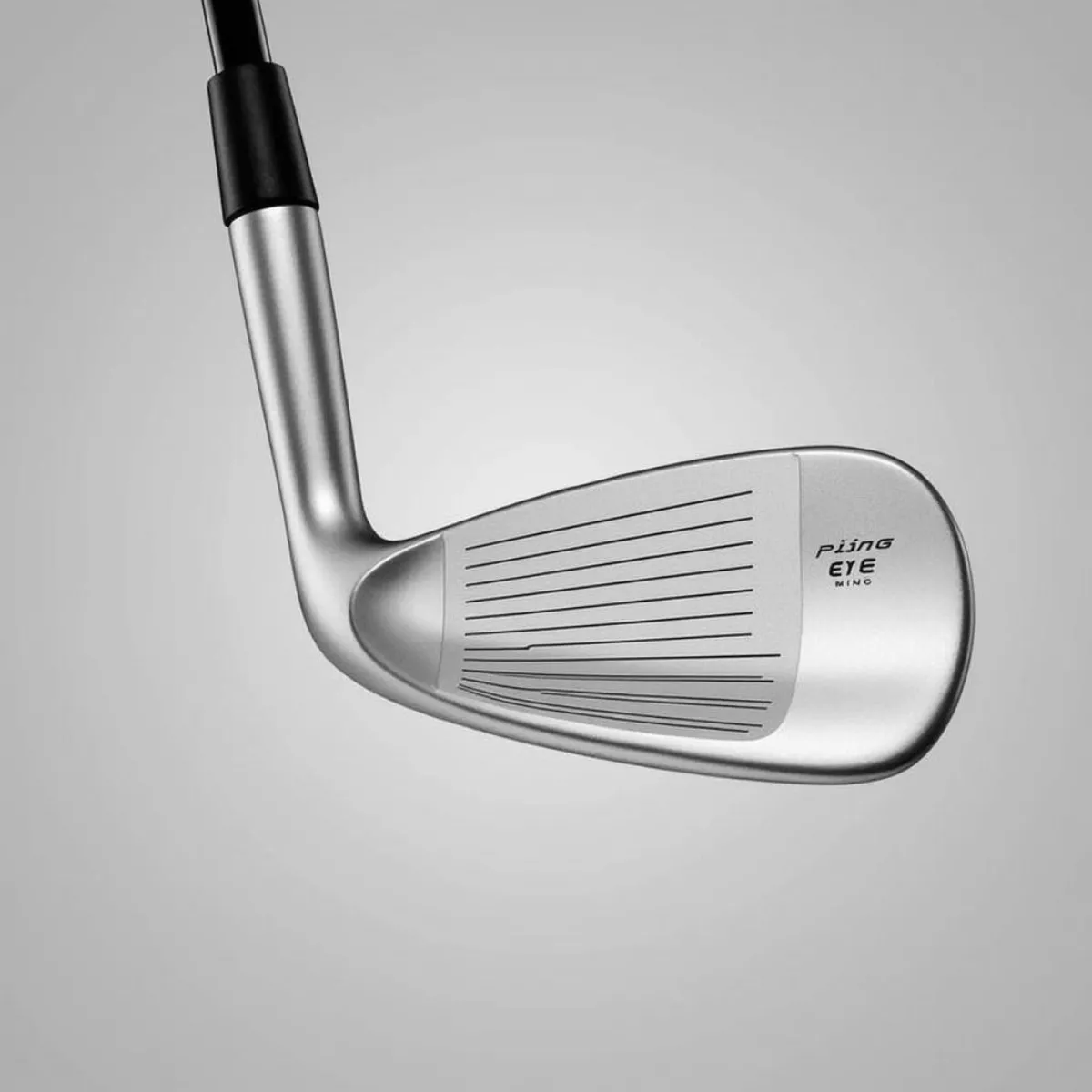
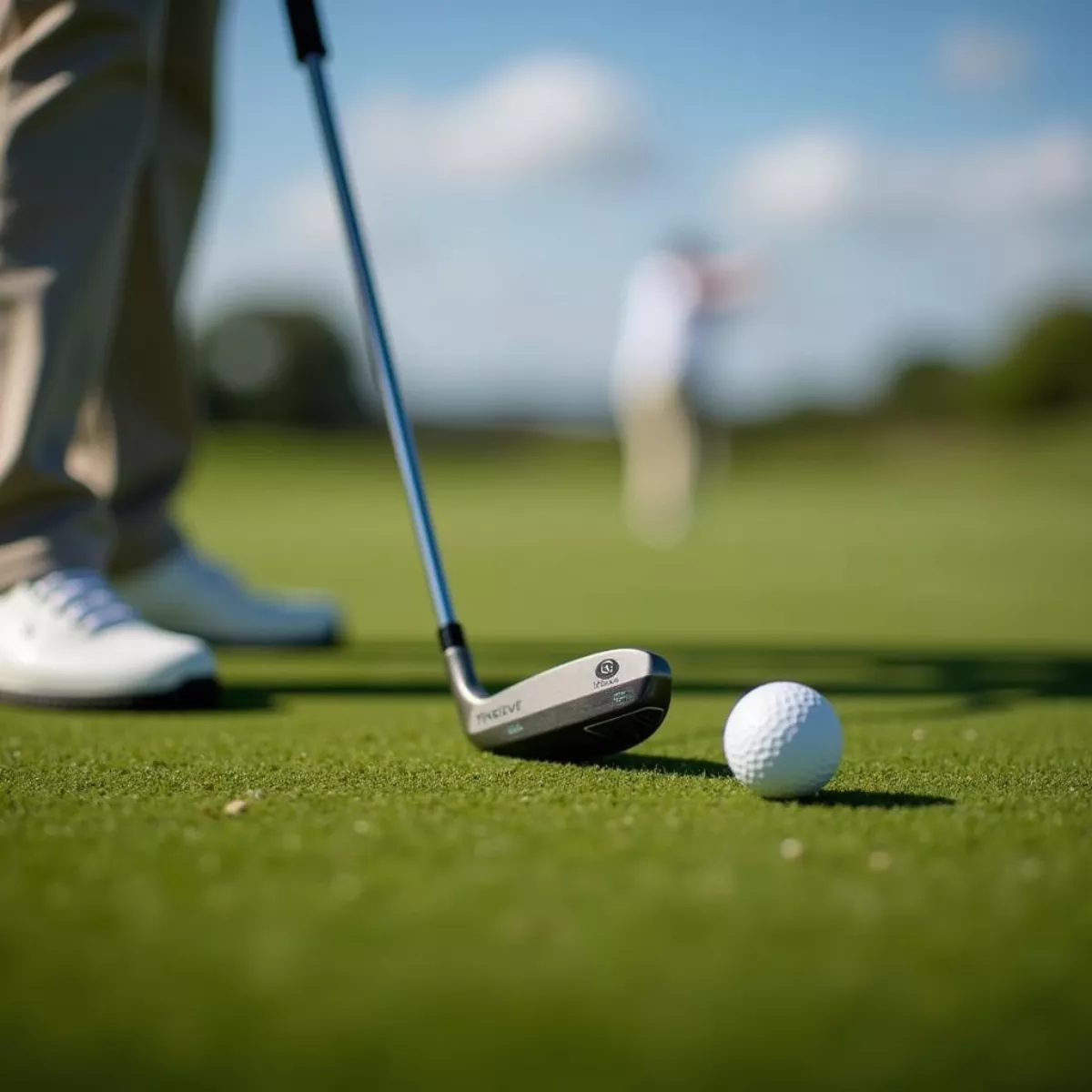 Golfer Using Ping Eye 2 L Wedge on Green
Golfer Using Ping Eye 2 L Wedge on Green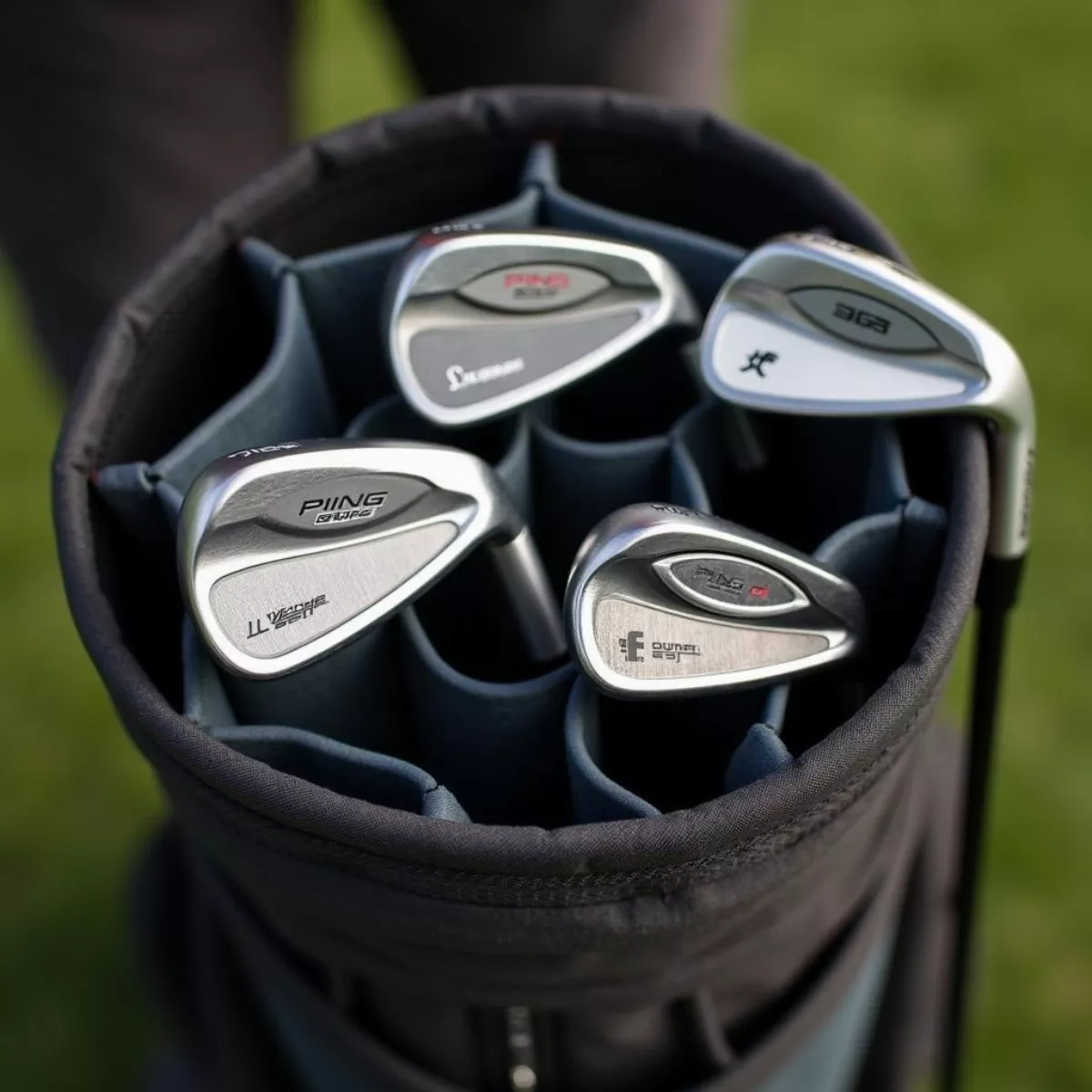 Golf Wedges in Bag
Golf Wedges in Bag
 Golfer swinging an iron at the golf ball.
Golfer swinging an iron at the golf ball.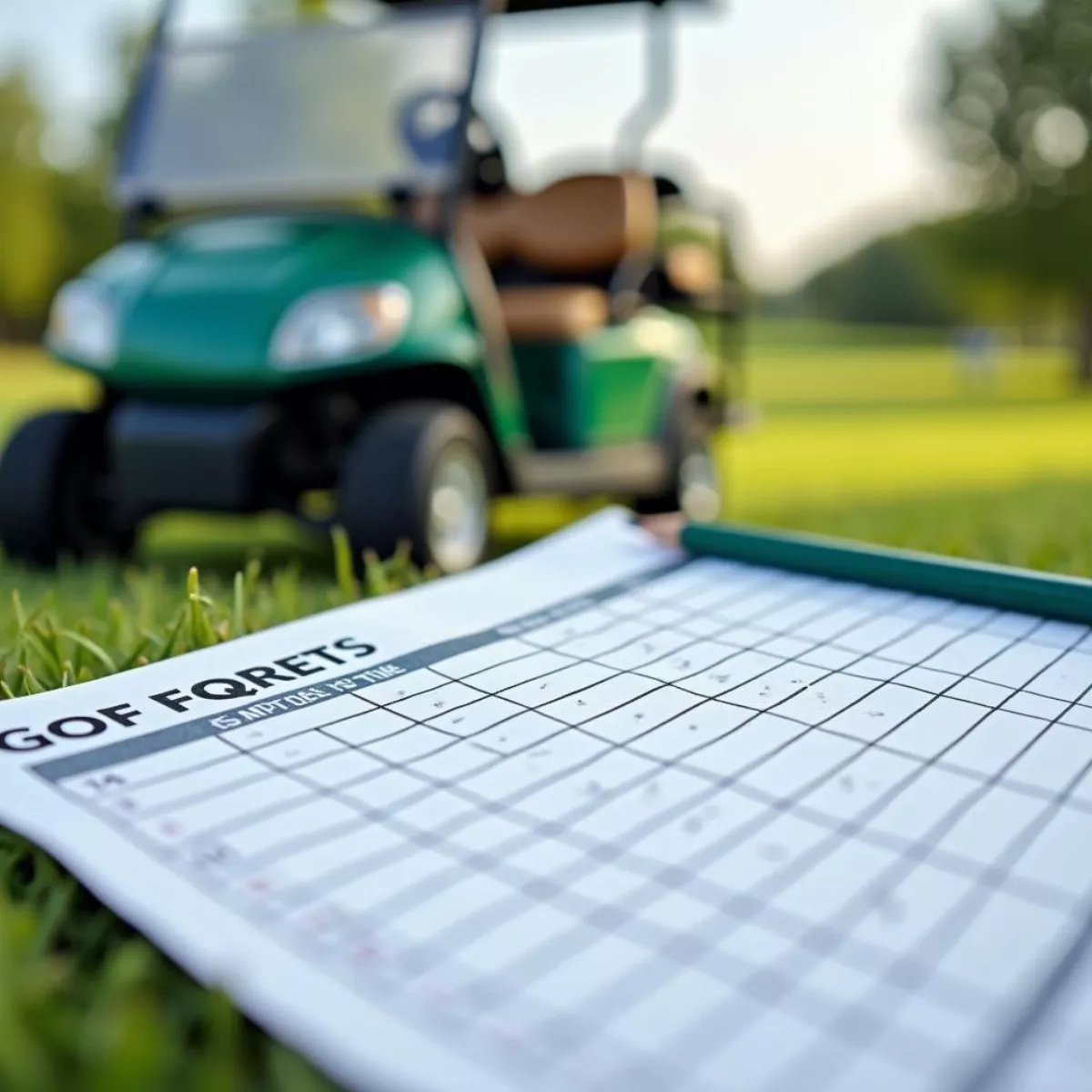 Golf scorecard, pencil, and golf cart in the background.
Golf scorecard, pencil, and golf cart in the background.
 Tiger Woods Putting
Tiger Woods Putting Tiger Woods Swing Analysis
Tiger Woods Swing Analysis
 Golfers celebrating a successful shot
Golfers celebrating a successful shot Golfer reacting to a missed shot
Golfer reacting to a missed shot
 Golfer celebrating a hole-in-one
Golfer celebrating a hole-in-one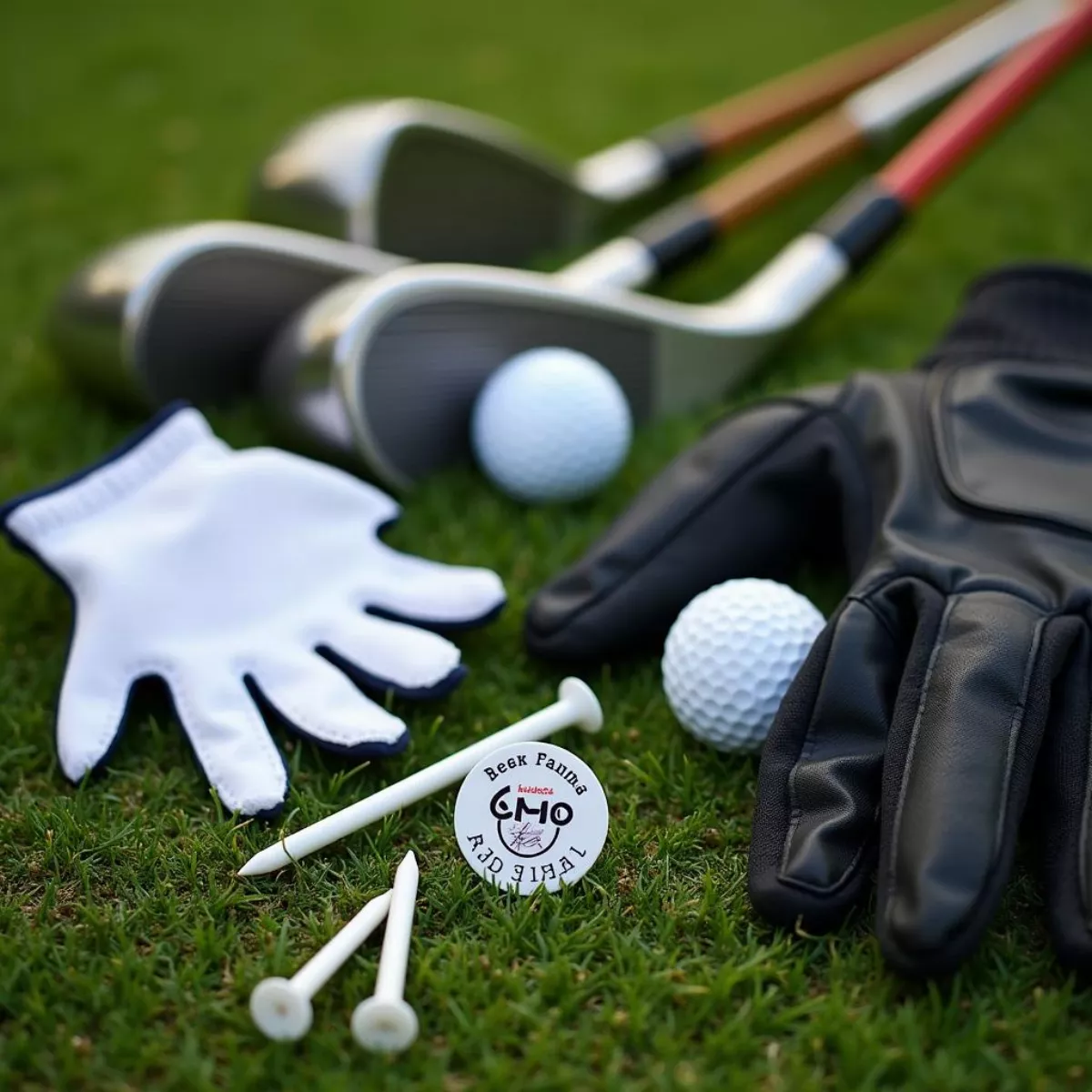 Golf equipment close-up
Golf equipment close-up
 Tarshes Drive Carmichael Home Exterior
Tarshes Drive Carmichael Home Exterior Carmichael Park Recreation Activities
Carmichael Park Recreation Activities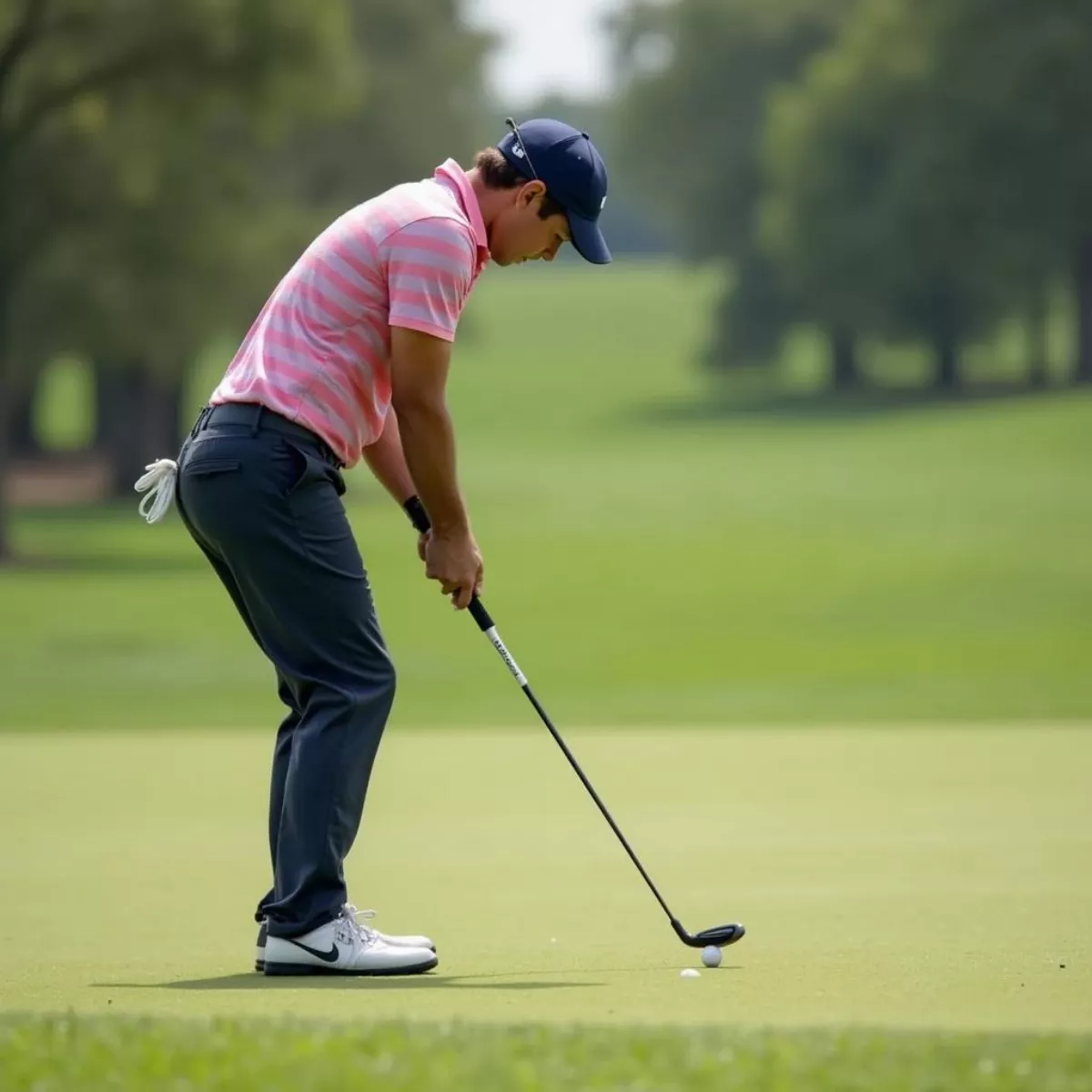
 Different lies of golf ball: rough, fairway, sand
Different lies of golf ball: rough, fairway, sand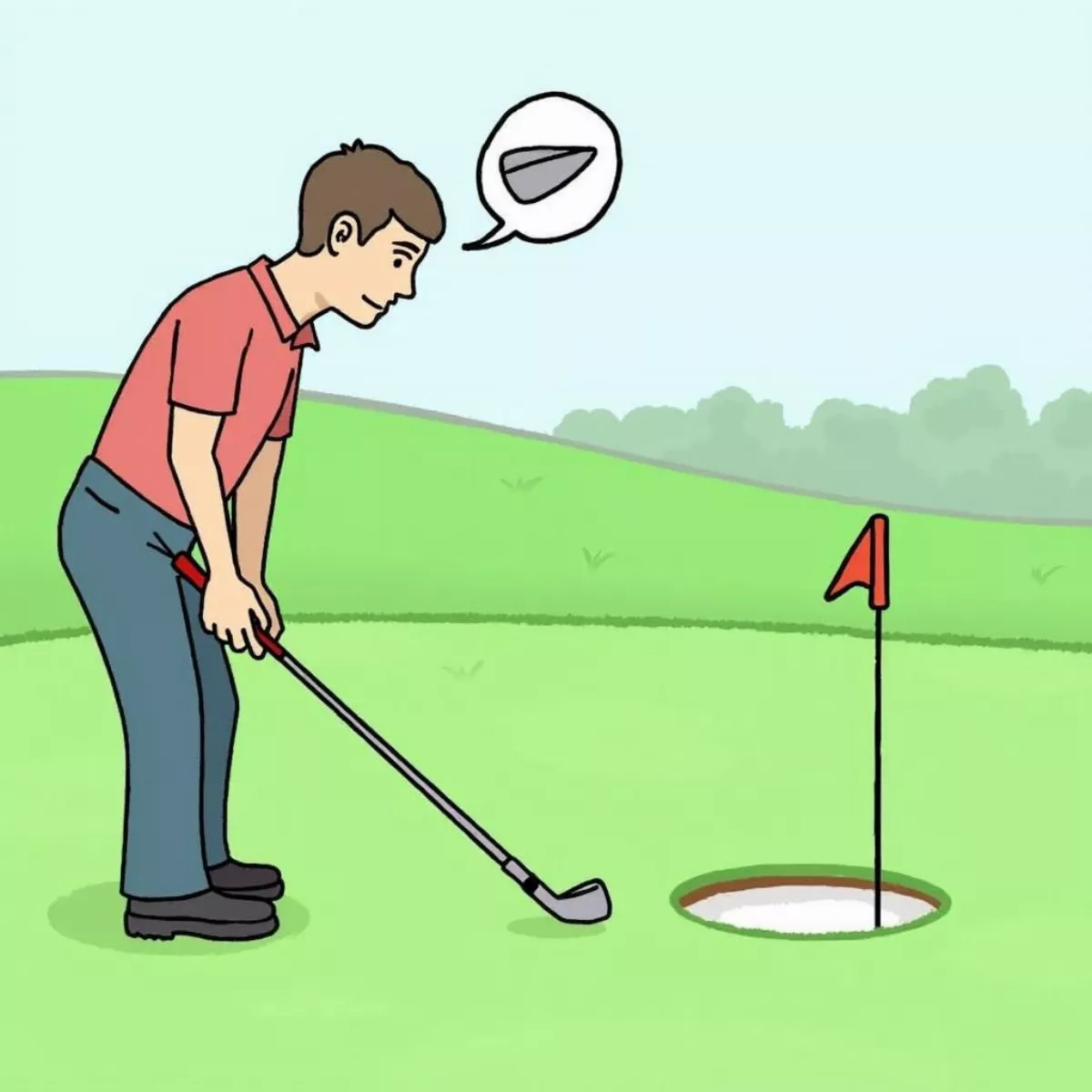 Golfer analyzing shot distance with 58 degree wedge
Golfer analyzing shot distance with 58 degree wedge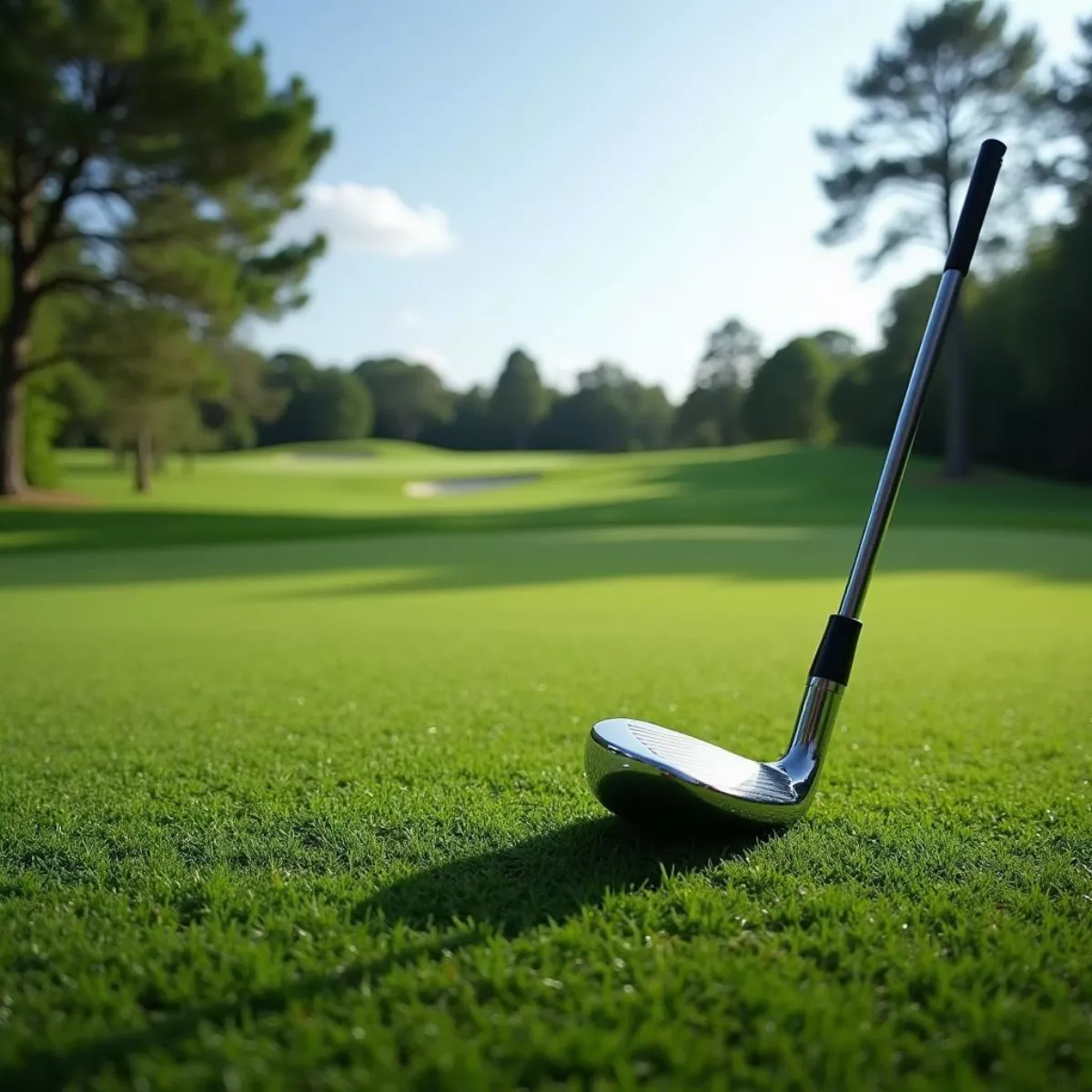
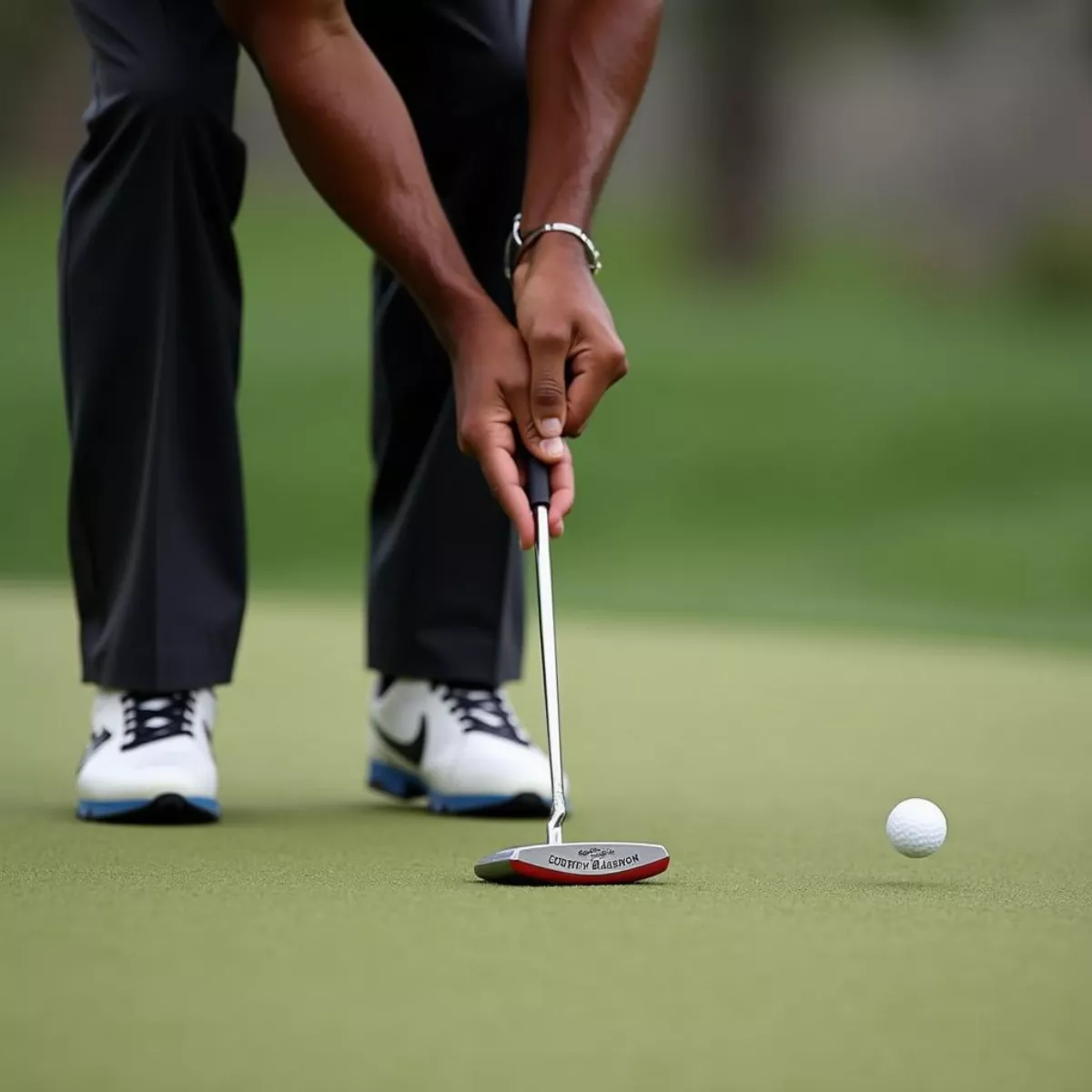
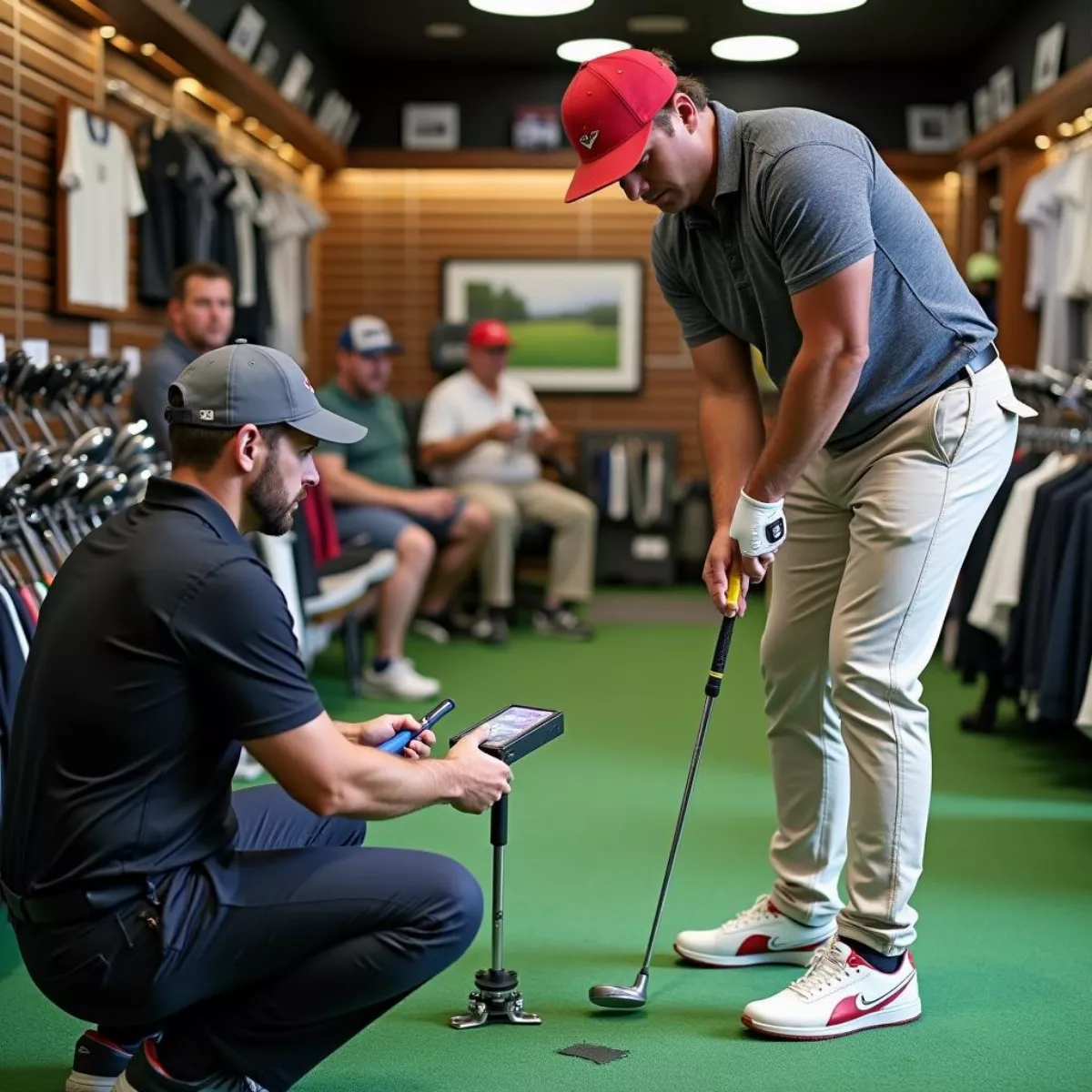 Golfer Getting Fitted for a Putter
Golfer Getting Fitted for a Putter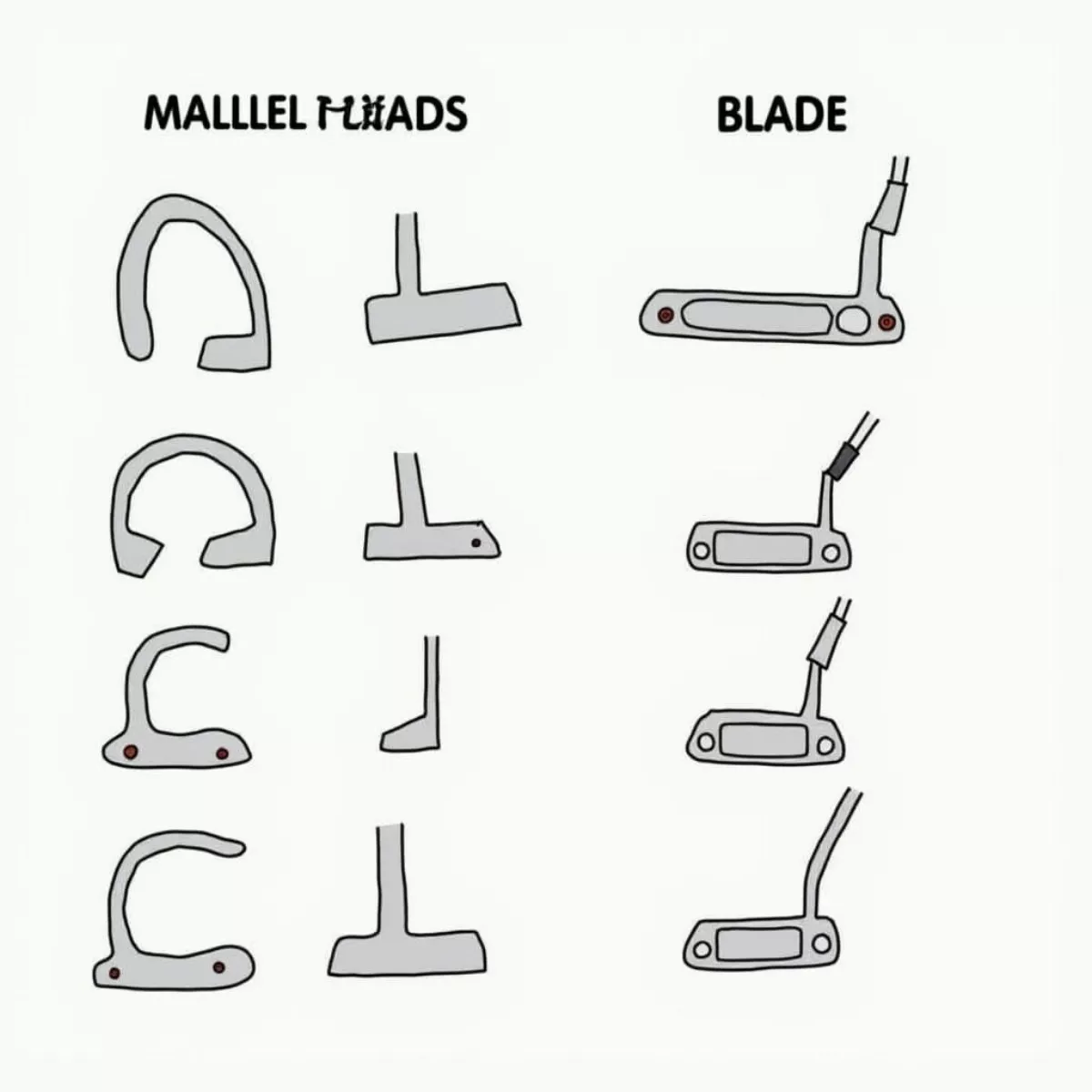 Different Putter Head Types
Different Putter Head Types